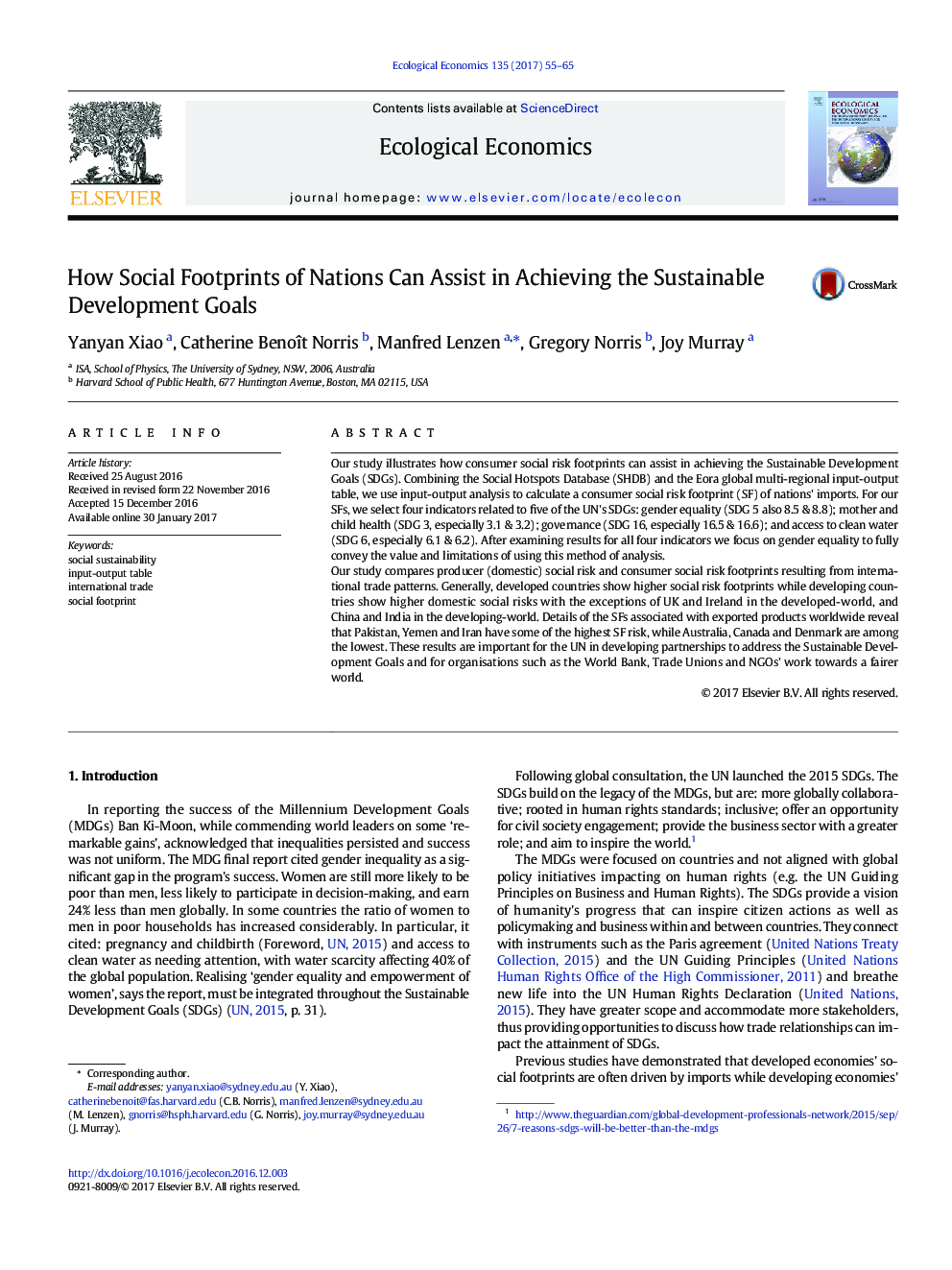| کد مقاله | کد نشریه | سال انتشار | مقاله انگلیسی | نسخه تمام متن |
|---|---|---|---|---|
| 5048788 | 1476344 | 2017 | 11 صفحه PDF | دانلود رایگان |
Our study illustrates how consumer social risk footprints can assist in achieving the Sustainable Development Goals (SDGs). Combining the Social Hotspots Database (SHDB) and the Eora global multi-regional input-output table, we use input-output analysis to calculate a consumer social risk footprint (SF) of nations' imports. For our SFs, we select four indicators related to five of the UN's SDGs: gender equality (SDG 5 also 8.5 & 8.8); mother and child health (SDG 3, especially 3.1 & 3.2); governance (SDG 16, especially 16.5 & 16.6); and access to clean water (SDG 6, especially 6.1 & 6.2). After examining results for all four indicators we focus on gender equality to fully convey the value and limitations of using this method of analysis.Our study compares producer (domestic) social risk and consumer social risk footprints resulting from international trade patterns. Generally, developed countries show higher social risk footprints while developing countries show higher domestic social risks with the exceptions of UK and Ireland in the developed-world, and China and India in the developing-world. Details of the SFs associated with exported products worldwide reveal that Pakistan, Yemen and Iran have some of the highest SF risk, while Australia, Canada and Denmark are among the lowest. These results are important for the UN in developing partnerships to address the Sustainable Development Goals and for organisations such as the World Bank, Trade Unions and NGOs' work towards a fairer world.
Journal: Ecological Economics - Volume 135, May 2017, Pages 55-65
